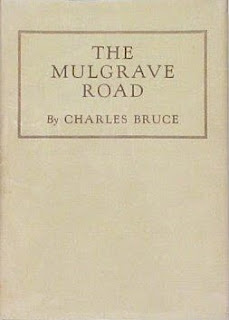
Yesterday's Globe and Mail featured a short work of fiction by Preston Manning. Titled "2018: The new health care", it's of a particular, peculiar, unnamed genre in which political types imagine a future where their greatest fantasy is realized.
I don't know... let's call it porn.
What Mr Manning does – what all who write these pieces do – is set up a row of carefully chosen dominos, each in itself a fantasy, which when set in motion culminate in the greatest fantasy of all.
Call it a climax.
Here Mr Manning imagines the election in Quebec of a "reform-minded government", the death of the Bloc Québécois, a Wikileak that exposes "media executives, editorialists, journalists and television personalities" as health care hypocrites and a "Nobel Prize-winner [sic]" who has Liberals and New Democrats eating crow. And the greatest fantasy of all? The abolition of medicare, of course:
Call it a climax.
Here Mr Manning imagines the election in Quebec of a "reform-minded government", the death of the Bloc Québécois, a Wikileak that exposes "media executives, editorialists, journalists and television personalities" as health care hypocrites and a "Nobel Prize-winner [sic]" who has Liberals and New Democrats eating crow. And the greatest fantasy of all? The abolition of medicare, of course:
The House, now enlightened by science and buoyed with Christmas cheer, unanimously approved a motion endorsing the "mixed systems" approach to health care and commending it to all provinces and territories. The motion specifically affirmed that such a system was completely compatible with the Canadian way, since, as all members had always known in their hearts, "mixed systems are the very essence of Canada’s national identity."
God bless us, every one!
As I say, one man's fantasy... but what interests me is the domino that Mr Manning calls "The Pepki Case":
George Pepki was a retired Alberta farmer who suffered from a kidney ailment and was referred by his family doctor to a specialist. While waiting for over four months to see the specialist, George's condition became critical and his family rushed him to the emergency ward of an Edmonton hospital. After waiting there for more than six hours and receiving no help, the family in desperation flew George to the Mayo Clinic in Scottsdale, Ariz., where he was diagnosed, treated and released within 72 hours. The family sought to recover the entire cost of the unauthorized trip and treatment from Alberta Health Services, which refused to pay. The Pepkis then took Alberta to court, the case eventually reaching the Supreme Court of Canada about the same time as Quebec was instituting its health-care reforms.
George Pepki is one of only two names featured in "2018: The new health care". The other, Nobel Prize winner Dr Lars Aalborg, is a figment of Mr Manning's imagination, but George Pepki is very much a real person. How do I know? Because Mr Manning has mentioned George Pepki before – from the floor of the House of Commons, no less. Here's Mr Manning on 2 October 1996 debating Bill C-45:
Thinking of the ineffectiveness of bureaucratic action in these areas, the inability of bureaucratic measures and institutions to protect people or to rehabilitate criminals, I am reminded of a poem by the Canadian poet George Pepki, inspired by the children's nursery rhyme "Humpty-Dumpty'':
Humpty-Dumpty sat on a wall
Humpty-Dumpty had a great fall;
All the king's horses and all the King's men
Couldn't put Humpty together again.
And what is the moral to this little rhyme?
A moral with meaning for men in our time?
The moral is this, and its lesson is true:
There are certain things that the state cannot do.
If all the King's horses and all the King's men
Cannot put an egg together again,
Is it not a false hope, an illusion, a sin,
To ask civil servants to reconstruct men?

Now, we don't hear much poetry recited in the House of Commons, so you'll understand why this particular poem and the proud Pepki name have stayed with me. But here's the thing: in the fourteen years since, I've not seen another poem by "Canadian poet George Pepki". Not only have there been no volumes of verse and nothing in our little magazines, no more than this morsel from Hansard has made its way onto the web.
When yesterday's Globe and Mail hit the stands I'd all but forgotten George Pepki, but he's now very much front of mind. Has the poet actually suffered a kidney ailment? Did his family fly him down to the Mayo Clinic in Scottsdale, Arizona? Was he really diagnosed, treated and released within 72 hours? Is there a case now winding its way to the Supreme Court? Or is Mr Manning simply imagining a future in which these trials will be visited upon George Pepki?
I've written the former Reform leader about the poet George Pepki, but have yet to receive a response.
Update: On 4 January I received a very generous email from Preston Manning in answer to my queries. Mystery solved... for me, at least; Mr Manning has asked that I keep the contents confidential. It's my hope that one day he'll share the secret of George Pepki with the public at large.

















